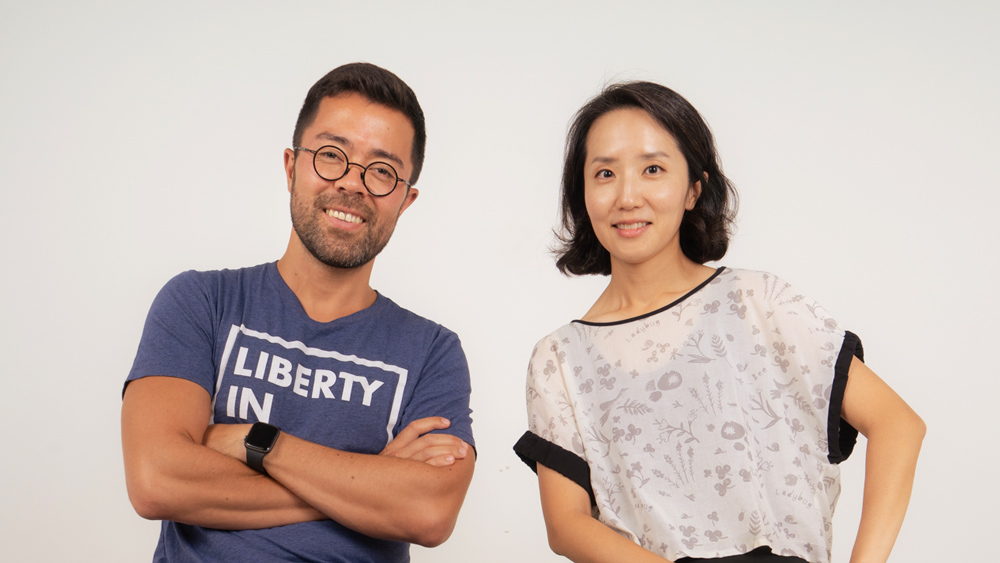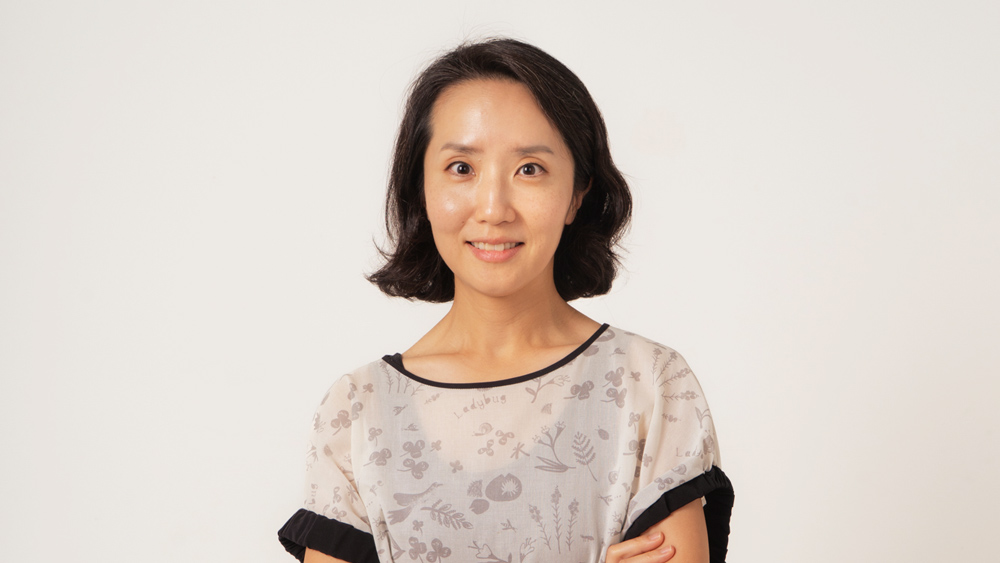LiNK English Language Program: Meet the Students of Fall 2021
A consistently reported challenge we hear from North Korean defectors is English language ability, which is critical for both educational and career opportunities in South Korea. To address this need, we launched the LiNK English Language Program (LiNKglish)! Our North Korean friends have so much potential, and through capacity-building programs, they’re equipped and empowered to achieve their goals.
After a pilot Summer 2021 semester, we’re excited to share that our Fall 2021 semester served 49 North Korean students and 50 “English buddy” volunteers! Meet Hyang Lee, one of last semester’s students.
Hyang Lee

Can you briefly introduce yourself?
Hello, my name is Hyang Lee. I’m 26 years old and I’m majoring in business management. I just completed the program but because my English grades were low, I have not yet graduated.
I participated in LiNKglish for both summer and fall semesters. Through the program, I participated in several speech contests and received positive feedback every time, which gave me a lot of confidence. I still keep in touch with my buddy, communicating in English, and am working to complete my studies!
What were some of the most memorable moments in LiNKglish?
This semester, I was able to continue studying with the same English buddy that I had in the summer, Stephanie. I was really happy it worked out! I already knew what kind of person she was, and I felt very comfortable practicing English with her.
The best part was when I taught Stephanie how to read Korean. I would read out loud in English, and she’d read the Korean translation out loud. It made me feel quite proud of myself, that I was able to help someone and also learn English. Two-birds-one-stone, right? That was the most memorable moment for me.
Has communicating with your English buddy changed your perspective on foreigners?
Hmm… not necessarily. What I realized was that I really like America, but my buddy really loves Korea. It made me think, “maybe it’s because our cultures are so different, we like each other’s.”
When we chat about our everyday life, we often talk about food. We ask each other what we had for lunch, what types of food we’ve been eating, what famous restaurants we’ve visited. I told her that I felt like things were a lot saltier in the US, and she agreed. It was fun to ask questions and connect over both our similar experiences and differences.

What was your favorite meeting during LiNKglish?
I think it was our offline activity, the hiking day! It was our first time meeting in-person and I couldn’t sleep for 3 days prior, because I was so excited. Even though it was hard hiking up the mountain, I found myself speaking with the other students and volunteers the entire time. It was amazing. And when we got to the top, and looked down the mountain with everyone… it felt really great to be finally out and about.
Do you think your self-confidence has increased through LiNKglish?
For sure! I used to be afraid of communicating with foreigners, but now I’m confident I could talk to anyone in English. One time, I went to a clothing store and there was a foreigner trying to purchase an item. The store clerk didn’t speak English so I stepped in to help. It made me so happy that I was able to learn a language and help someone with it.
I actually got married last December. My husband and I plan to go overseas for missions in 7-8 years. I will have to use English so much more when I go overseas. I want to study hard and communicate in English as much as possible now, so that it will be easier for me when I go and do mission work.
At the Forefront of North Korean Human Rights Work | LiNK Organizational Update
Liberty in North Korea welcomes Sarah Yun as our new Chief Regional Officer (CRO), South Korea, as our previous South Korea Country Director, Sokeel Park, transitions into a new role as our Chief Strategy Officer (CSO). Sarah and Sokeel will collaboratively lead LiNK’s South Korea operations while growing LiNK’s impact through their respective areas of expertise.

Over a Decade of Dedication to Human Rights
Sarah Yun brings a wealth of experience and expertise from her work to advance human rights in North Korea and across Asia during the past 15 years. She most recently served as the Country Director of Korea and Cambodia at the National Democratic Institute (NDI), managing the Institute’s operations and programs in the two countries.
Previously, Sarah was a Senior Manager for Asia at the National Endowment for Democracy (NED), overseeing the Cambodia, Vietnam, North Korea, Thailand, and the Philippines programs and teams. Prior to her experience at the NED, she worked at the Center for International Private Enterprise where she managed the Cambodia and North Korea programs, in addition to the Papua New Guinea program and field office.
“I have had the opportunity to work on issues related to various countries in Asia at a variety of institutions throughout my career, but my greatest passion has always been to envision a North Korea where its people can choose their own future. I am deeply inspired by the stories and resilience of the North Korean people and am committed to supporting their leadership and efforts toward a better future.”
– Sarah Yun, LiNK CRO

Sarah holds a BA in Political Science and Business Institutions from Northwestern University and MA in International Relations and International Economics from Johns Hopkins University School of Advanced International Studies. Her journey with LiNK began in college, when she came across her campus LiNK Team.
“I first learned about LiNK during my college years, when chapters began to emerge across the United States. Since then, I have respected the organization’s mission and work. When I was given the opportunity to work at LiNK, I had great anticipation and excitement at the thought of joining and supporting North Koreans' journey toward a free and open future. Together with the LiNK team, I hope to contribute to amplifying the leadership and voices of young North Korean defectors in creative and impactful ways.”
– Sarah Yun, LiNK CRO
A Strategic Shift
As LiNK continues to expand and refocus our programs in response to the evolving needs of this issue, there was a timely opportunity to bring on Sarah and diversify the organization’s impact.
As CRO, Sarah Yun will lead LiNK’s South Korea team, oversee our Capacity Building Programs, and represent the organization in South Korea. Sokeel Park will jointly represent LiNK alongside Sarah and maintain key collaborative efforts with external stakeholders. As CSO, Sokeel’s scope will also encompass the development of the organization’s broader strategy and Information Access Programs (IAP). Moving forward, IAP is an area of work which we are expanding as a crucial way to support North Koreans driving change inside the country, and achieve our vision.
North Korean refugees consistently tell us that getting more outside information into North Korea is crucial for empowering North Koreans to change their country. The importance of this area of work has only increased in recent years, so it is vital that we are able to increase the resources and time we are investing into these strategies. I’m extremely grateful to our donors for joining with us and making this expansion and these initiatives possible.”
– Sokeel Park, LiNK CSO
This is a challenging time for North Korean people, refugees, and the issue. We are grateful to Sarah for bringing her experience and expertise to LiNK and everyone whose support sustains our organization and enables us to grow.
We look forward to increasing our impact with Sarah’s leadership and sharing updates about our progress with our supporters.




